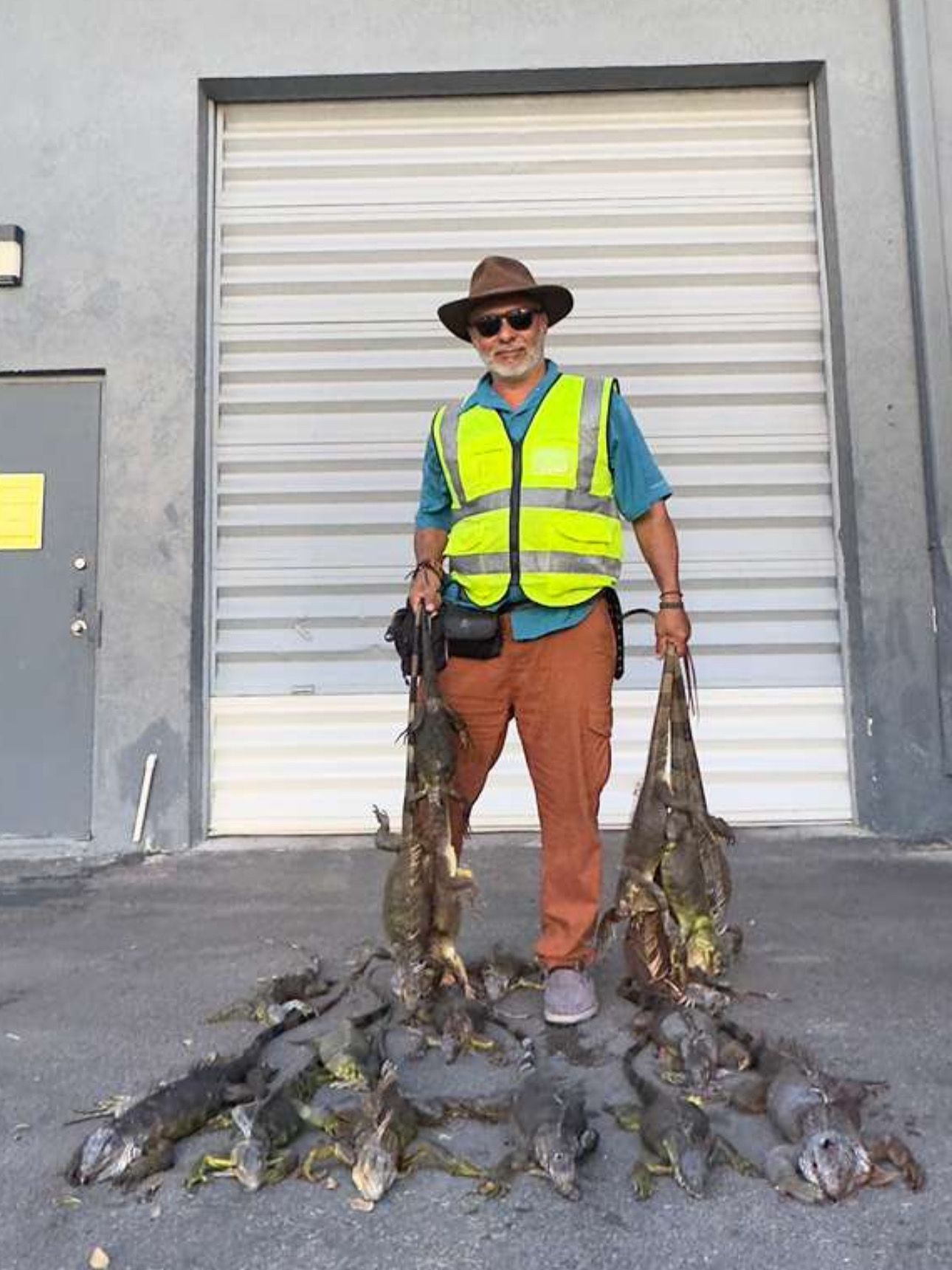Educational
🦎 Why Are Iguanas a Problem in Florida?
In South Florida, iguanas have become a growing invasive species, causing serious damage to residential and commercial properties, landscaping, and the natural ecosystem. While they may seem harmless at first, these large herbivorous lizards multiply quickly in Florida’s tropical climate and can pose real problems if left unchecked.
🚨 How Did Iguanas Become Invasive?
Green iguanas are not native to Florida. They arrived via ships from Central and South America carrying fruit. Some were kept as exotic pets, and others escaped or were released into the wild. Due to Florida’s warm climate and lack of natural predators, their population exploded. Now, they thrive in urban areas, hiding in attics, roofs, seawalls, gardens, and even storm drains.
🌿 What Damage Do They Cause?
Iguanas feed on a wide variety of ornamental plants, flowers, fruits, and vegetables, destroying gardens, landscaping, and lawns. Commonly targeted plants include hibiscus, orchids, and young trees.
But the damage goes beyond vegetation:
Infrastructure: Iguanas dig deep burrows along foundations, sidewalks, seawalls, and canals, leading to structural erosion and collapse.
Electrical Systems: They can short out power lines when climbing on equipment.
Sanitation: Iguana droppings can contaminate pool decks, patios, and docks, potentially spreading salmonella.
🐊 Types of Iguanas in Florida
There are several species of invasive iguanas in Florida:
Green Iguana: Most common. Can grow up to 5 feet long and weigh up to 20 pounds. Bright green when young, turning brown or gray as adults.
Black Spiny-Tailed Iguana: Smaller, with dark body bands and orange coloring near the throat. Known for burrowing in rocky environments.
Mexican Spiny-Tailed Iguana: Gray-brown with yellow belly, up to 4 feet long. Females dig underground nests for eggs.
📍 Where Are Iguanas Most Common?
While iguanas can be found across Florida, they are most concentrated in South Florida — particularly in Miami-Dade, Broward, and Palm Beach counties. The warm, humid environment, lush vegetation, and lack of predators make this region ideal for their reproduction.
🌎 Ecological Impact
Iguanas compete with native wildlife for food and habitat. Their appetite for flowering plants disrupts butterfly populations and contributes to the extinction of native species like the Miami Blue Butterfly. Their burrowing also interferes with government replanting and conservation efforts.
❗ Are Iguanas Dangerous?
Iguanas are not poisonous and are generally not aggressive toward humans or pets. However, if threatened, they may use their sharp claws, tail, or teeth to defend themselves. Bites can cause deep cuts, and droppings may carry salmonella bacteria.
✅ What Should You Do?
If you notice iguanas on your property, it’s essential to act quickly. These reptiles multiply rapidly and can turn a small problem into a costly infestation. At Iguana Jones Removal, we specialize in safe, humane, and eco-friendly iguana control across South Florida.
We remove iguanas — you preserve your paradise.
📍 Serving North Miami, Aventura, Hollywood, and surrounding areas.
¡Hablamos español!
